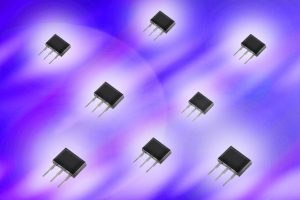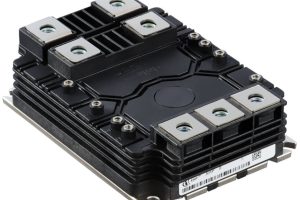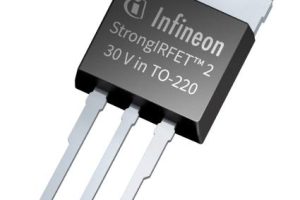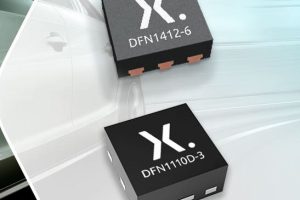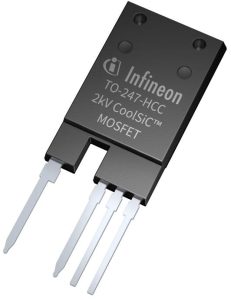
“It is the first discrete silicon carbide device with a breakdown voltage of 2,000V on the market, with a creepage distance of 14mm and clearance distance of 5.4mm,” according to the company. “The devices are ideal for solar string inverters as well as energy storage systems and electric vehicle charging.”
The package measures ~16 x 23mm long, plus leads, with a 5.6mm deep creepage slot separating the drain lead from the other three.
Picking out the 63A max (100°C, 89A at 25°C) IMYH200R024M1H, which features in the evaluation kit fore these devices:
Junction to case thermal resistance is 0.26K/W max (0.20K/W typ).
Gate threshold voltage is between 3.5 and 5.5V at 25°C – measured at a drain current of 24mA after a 1ms 20V gate pulse. The typical value is 4.5V, which drops to 3.6V at 175°C. Input capacitance is 4.85nF.
The body diode is rated at 91A at 25°C, dropping to 69A at 100°C.
There are four other devices in the series so far, rated at between 26 and 123A (25°C) and 100 to 12mΩ.
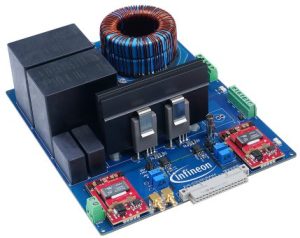 The demo board implements a half bridge and includes isolated gate drivers and a power supply (12Vin needed).
The demo board implements a half bridge and includes isolated gate drivers and a power supply (12Vin needed).
It is very much a board for evaluating the exact charctersitics of the mosfets – with double pulse testing to calculate switching losses, for example – and not for building into a power supply.
As such, it only has a small heatsink – which is equipped with a heater (behind the heatsink in the photo) and thermistor for temperature setting prior to applying test pulses. All drive pulses need to be applied externally – the company’s XMC4400 board is a suitable pulse generator, it said.
2kV diodes are to follow: in a ‘TO-247PLUS’ four-pin package in the third quarter of 2024, followed by 2kV SiC diodes in a TO-247-2 package in the fourth quarter. “These diodes are particularly suitable for solar applications”, said Infineon.
Web pages:
EVAL-COOLSIC-2KVHCC demo board
 Electronics Weekly Electronics Design & Components Tech News
Electronics Weekly Electronics Design & Components Tech News
